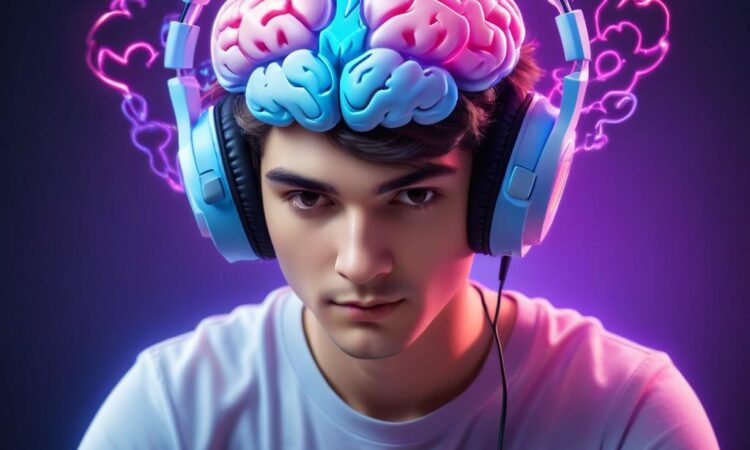Esports and Mental Health: Addressing the Challenges Faced by Professional Gamers
Introduction
The world of esports has exploded in popularity, attracting millions of viewers and showcasing the incredible skills of professional gamers. However, behind the dazzling lights and competitive spirit lies a growing concern: the mental health of these athletes. Professional gamers face unique pressures and challenges that can significantly impact their well-being, leading to issues such as anxiety, depression, burnout, and addiction.
This article delves into the mental health challenges faced by professional esports players, exploring the factors contributing to these issues and discussing strategies for prevention and support. We will also examine the importance of promoting awareness within the esports community, fostering a culture of understanding and encouraging open dialogue about mental health.
The Unique Pressures of Professional Gaming
The competitive nature of esports, coupled with the constant pressure to perform at the highest level, creates an intense environment for professional gamers. This pressure stems from multiple sources:
- High Stakes and Financial Rewards: Esports tournaments offer substantial prize pools and lucrative sponsorship deals, creating significant financial incentives and the potential for immense pressure to succeed.
- Public Scrutiny and Fan Expectations: Professional gamers are often subject to intense public scrutiny, with their every move analyzed and criticized by fans and critics. This constant pressure can lead to feelings of anxiety and inadequacy.
- Long Hours and Sedentary Lifestyle: Professional gamers spend countless hours training and competing, often leading to a sedentary lifestyle and neglecting physical health, which can contribute to mental health issues.
- Social Isolation and Lack of Work-Life Balance: The demanding schedule and intense focus on gaming can lead to social isolation and a lack of work-life balance, impacting overall mental well-being.
- Competition and Fear of Failure: The competitive nature of esports breeds a constant fear of failure, as players strive to maintain their rankings and secure opportunities. This fear can lead to anxiety and performance-related stress.
Mental Health Challenges in Esports
The unique pressures faced by professional gamers can manifest in various mental health challenges, including:
- Anxiety and Depression: The constant pressure to perform and the fear of failure can lead to anxiety and depressive symptoms, affecting players’ motivation, concentration, and overall well-being.
- Burnout: The demanding schedule, intense competition, and constant pressure can contribute to burnout, characterized by emotional exhaustion, cynicism, and a decline in performance.
- Gaming Addiction: The immersive nature of gaming can lead to addiction, where players find it difficult to control their gaming time and prioritize other aspects of their lives.
- Sleep Disorders: The irregular sleep patterns, late-night gaming sessions, and screen time can disrupt sleep, leading to insomnia and other sleep disorders, further impacting mental health.
- Physical Health Issues: The sedentary lifestyle of professional gamers can contribute to physical health issues, such as obesity, back pain, and eye strain, which can impact mental well-being.
Strategies for Prevention and Support
Addressing the mental health challenges faced by professional gamers requires a multifaceted approach, encompassing prevention, support, and awareness:
Prevention
- Promoting Healthy Lifestyle Habits: Encouraging players to prioritize physical health through regular exercise, healthy eating, and adequate sleep can improve overall well-being and reduce the risk of mental health issues.
- Establishing Work-Life Balance: Promoting a balanced lifestyle that includes time for hobbies, social interactions, and relaxation can help prevent burnout and maintain mental well-being.
- Developing Coping Mechanisms: Teaching players effective coping mechanisms for managing stress, anxiety, and negative emotions can equip them to navigate the pressures of professional gaming.
- Creating a Supportive Environment: Fostering a positive and supportive environment within teams and organizations can help reduce the stigma surrounding mental health and encourage players to seek help when needed.
Support
- Access to Mental Health Professionals: Providing access to qualified mental health professionals who understand the unique pressures of professional gaming can ensure players receive appropriate support and treatment.
- Team Support and Peer Mentorship: Encouraging teams to create support systems within their ranks, with teammates and coaches providing emotional support and guidance, can foster a sense of community and reduce feelings of isolation.
- Mental Health Awareness Programs: Implementing educational programs to raise awareness about mental health challenges and coping mechanisms within the esports community can help reduce stigma and encourage open dialogue.
Promoting Awareness and Open Dialogue
Addressing mental health challenges in esports requires a collective effort, with stakeholders from players, teams, organizations, and the broader community playing a crucial role. Promoting awareness and encouraging open dialogue about mental health is essential for creating a more supportive and understanding environment.
- Open Communication and Transparency: Openly discussing mental health issues within teams, organizations, and the wider community can help reduce stigma and encourage players to seek support without fear of judgment.
- Education and Awareness Campaigns: Implementing educational programs and awareness campaigns targeting players, coaches, team staff, and fans can increase knowledge and understanding of mental health challenges and resources.
- Sharing Personal Stories: Encouraging professional gamers to share their personal stories and experiences with mental health can inspire others to seek help and reduce the stigma surrounding these issues.
Conclusion
The mental health of professional esports players is an increasingly important issue that deserves attention and action. Recognizing the unique pressures faced by these athletes, fostering a culture of understanding and support, and promoting open dialogue about mental health are crucial steps in creating a healthier and more sustainable esports environment.
By addressing these challenges, we can ensure that the future of esports is one where players are empowered to thrive both on and off the virtual battlefield.

